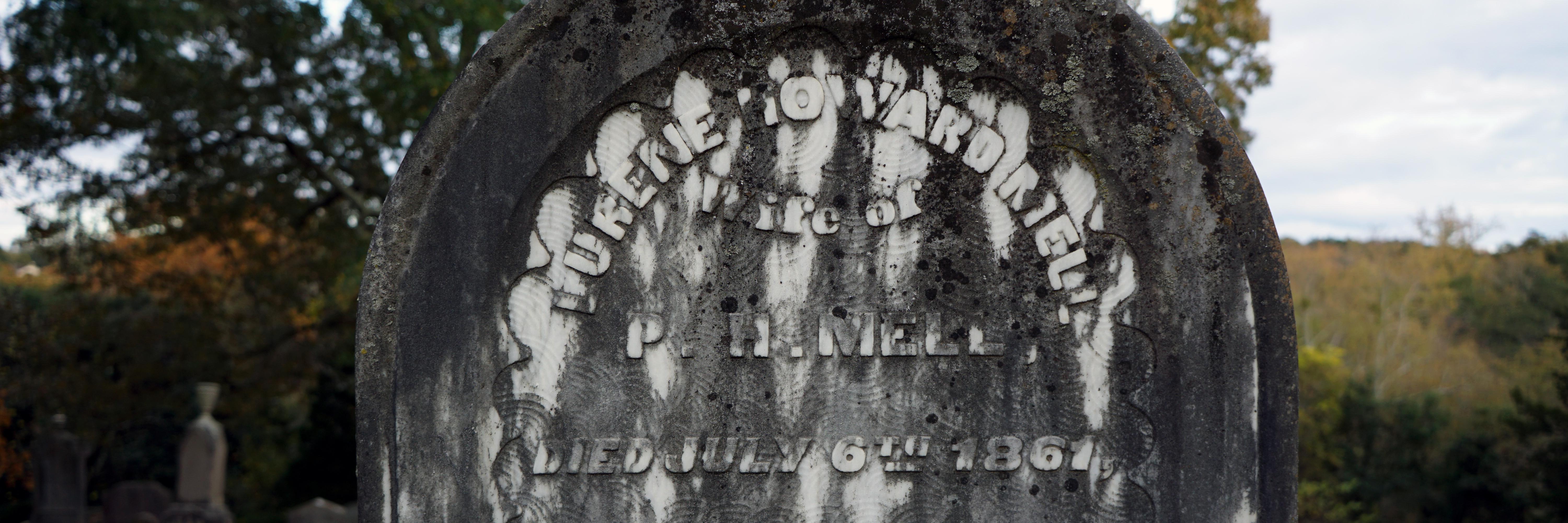About
Viewing the segregated South from its morgue and its cemeteries, the Athens Death Project measures racial and socioeconomic disparities in health outcomes and life expectancy during the nineteenth and early twentieth centuries. Legal prohibitions and social inequalities—demanding physical labor, unsanitary working conditions, unequal access to health care, and redlined residential areas—always tell at the morgue. Using Athens-Clarke County death certificates, mortuary records, and cemetery data, this project critically interrogates the lasting effects of racial inequality for Black and white residents. In Athens, Georgia, we have never lived equally and, in turn, we did not and still do not die equally. True social justice will be achieved when there is no longer a significant statistical advantage to belonging to one group or another when it comes to longevity and health outcomes. The first step in this process is to recognize and reckon with the historical record and confront the lasting effects of slavery, Jim Crow segregation, and urban renewal.
If you are aware of other records that would help us reconstitute the story of life and death in Athens, especially as variously experienced by Blacks and whites, please get in contact with us. The legacies of enslavement, Jim Crow, and unequal access to everything from health care to the ballot box to the morgue deserved to be investigated.
Table of Contents
This webpage contains myriad sources and documents relating to death and dying in Athens, Georgia. If you have a particulate decedent or cemetery in mind, you many want might click on the magnifying glass at the top right and search the entire archive for people, places, or key terms. Likewise, if you are interested in data visualizations, you might want to click on Death Certificates or one of the many other pages devoted to mapping and interactive data visualizations. Or, perhaps, you are visiting or new to town; in that case, I would suggest you consider perusing the Walking Tours tab. Let us begin here with a table of contents:

Athens, Georgia explores our town’s past and present, with an emphasis on the lasting legacies of slavery and persisiting racial and socioeconomic inequalities. Local neighborhoods -- from East Side to Boulevard to Five Points -- were and still are divided by both race and class; even today few residential areas are truly integrated. In the late nineteenth and early twenty centuries, poor African-Americans and blue-collar mill workers congregated on the East Side while wealthier residents of color purchased homes along Reese Street. In Athens, we never lived equally and, therefore, we never died equally.
Decedent Data focuses on the men, woman, and children interred in Athens's cemeteries. Who were they? How did they die? And how can we use this information to better understand their lives? Viewing Athens from its morgue, this section uses death certificates to understand the lived experiences of white and Black Athenians during the nineteenth and twenty centuries. Contained within this section are essays authored by University of Georgia undergraduate students.
Cemeteries examines five historical burial grounds in Clarke County. In addition to mapping grave locations within respective cemeteries, this section contains biographical information of individuals buried within these sacred spaces. Presently, this section focuses heavily on Gospel Pilgrim Cemetery, a historic African-American burial ground in East Athens.
Walking Tours offers several tours of historic Athens, Georgia. While these tours can be read online for historical information, it is suggested that you use your phone and explore each of the cemeteries. Indeed, place matters. Go, in person, and get a true sense of these meaningful yet mournful public spaces.
Events announces upcoming events and catalogues previous service learning projects in the Athens area.
NEXT: Introduction


